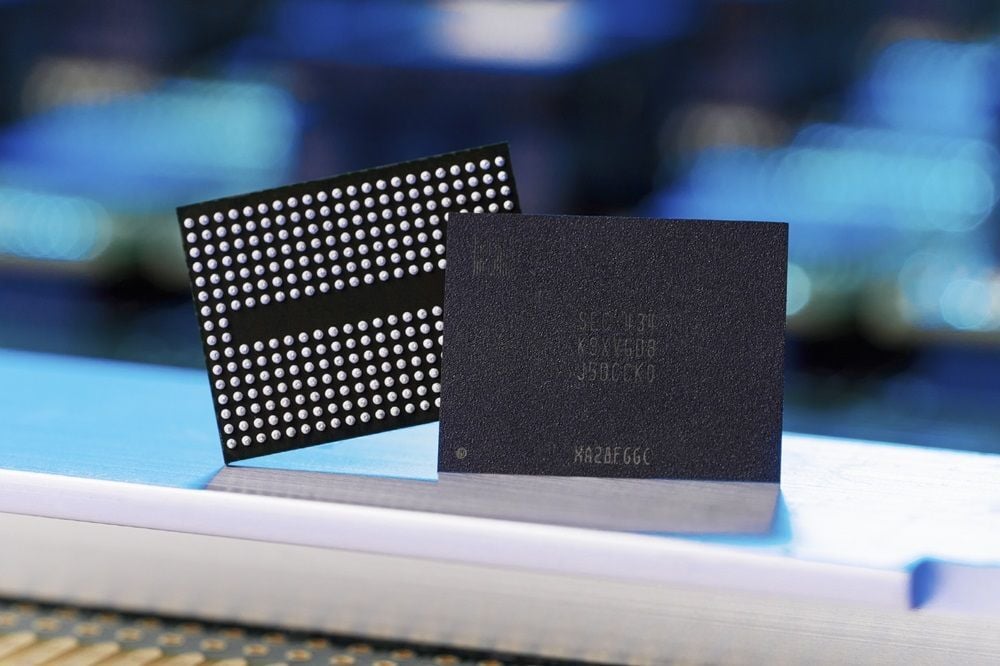just in time for GTA6 to come out and be 3TB in size
I wouldn’t even mind tbh.
Except it would take 3 literal months to download it (stupid home internet with a 1.25TB data cap)
Goodness, do you live in Australia or something? Are there any better options, or can you not afford them? My spoiled and priveleged self has trouble comprehending a data cap on my internet plan.
It’s Comcastic!
United States. They have data caps because
their backbone isn’t powerful enough for 2gbps home internetthey prefer to offer more value to customersYou forgot “and they’re greedy fuck pigs”
well, that’s a given
Do they also pull the “fair use” bullshit out their asses like our ISPs?
And if you go to the store and buy it in person, it’ll be a empty cd case with a serial key to download.
or with a CD that installs a downloader, that is actually a background service always starting with the OS, and a few other bloatware to not waste CD space
except that almost nobody has a CD drive anymore. so it must be a pendrive instead that was forced to read-only access
Can I ask what country so I can avoid it like the plague?
Ah yes, good ol’ US of A. Why am I not surprised?My ISP recently introduced data caps on unlimited (they throttle you to 4Mbit if you go past ~300GB or 500, not sure). I already wanted to leave but that’s really lighting a fire under me to move the fuck out of here.
? I’ve never had a data cap and I’m in the US. Many areas now have alternatives to cable/DSL. I have fiber-backed Ethernet at the wall, and my city is rolling out muni-fiber, and we’re honestly kind of late to the game compared to my local area.
Shop around, maybe you have more options now.
Ah shit. That would suck. Personally I could start the download and have the game the next day. Which is roughly what it took to torrent a 4 GiB game back in the day if there weren’t enough seeds.
250GB tops or it will be bs.
GTA5 already had about 90-110GB of raw gamedata. I think right now it’s 150GB.
And Apple will finally sell the iPhone starting with 256GB
Technically the Pro Max already starts at 256 GB (starting with the 15 series iirc). But they simply removed the 128 GB option from the price stack.
What do you need 256gb for? You don’t seriously store photos and videos on your phone… as the only place?
My 100GB music library leaves less space than I’d like on a 128GB phone.
that’s what expandable storage (i.e. sd card) is for.
oh your phone does not know what that is?
You really listen to that much music that often? I assume that’s compressed as well, because I don’t think there’s a point to high-bitrate media when you’re going to play it through phone speakers or Bluetooth.
Personally I just use plain old FM radio in my car, a couple dozen songs on my workout playlist for the gym, and YouTube streams for work.
Personally I just use plain old FM radio in my car
Great if you only want to listen to music half the time.
that’s what expandable storage (i.e. sd card) is for.
oh your phone does not know what that is?
My girlfriend learned that lesson the hard way. We now have a nas and off-site storage.
Fuck yeah! I NAS swap with a friend. I have my house NAS which syncs to my other one at his place and he does the same. (4 total)
The prices will stay the same. Manufacturers will just make more profit.
Is that what has happened to the storage market historically?
Not at all. The price of storage has plummeted so much that most video games comfortably use ~100GB for large games and don’t care because even SSD storage is extremely cheap.
If you don’t believe me, here’s a post on Reddit that shows it off pretty well.
There’s two ways to take that statement. The price of a hard drive will remain the same, or the price per memory unit will remain the same. Price per hard drive remains largely the same. Price per unit of memory drops.
The only exception here is SSDs are slowly dropping in price to meet magnetic disk drives.
Interpreted the other way, I don’t think that makes sense because on the whole storage has always gotten cheaper with time. Hard drives may cost the same, but they’re larger capacity so really this would only work as an argument if hard drive storage space stayed the same and prices remained the same for consumers but went down for manufacturers.
Also there’s a lot of competition in the space similar to other chips so I don’t see how a company making NAND or platters can afford to sit on their hands like that. The whole point of drive innovation right now is to drive the price per GB down for B2B sales. And that usually translates well to consumer sales too.
That’s business logic. Consumer logic is that when things get cheaper they should actually be cheaper.
They do get cheaper but the cheaper ones don’t get made because they aren’t worth anything anymore. Like sure you can get a 500GB HDD which used to be a moderately priced option and is now basically trash or free. The prices go down, but the key is that consumers no longer want the old thing either.
Actually those are still available. And I will admit if anyone tried to get me to pay 100 dollars for one now I would probably laugh them out of the room.
The actual shells and manufacturing costs aren’t going down meaningfully. Giving you more for the same price is how consumers benefit the most. Especially because consumer demands for storage (among people willing to buy any, at least) keep going up and there isn’t a big market for HDDs that are half the price but 1/4 of the storage.
I’m not exactly sure what that chart is using for data sources. Historically every couple of years I’ve bought whatever goes on sale for around $200 and added it to my unraid.
I was able to pick up exos 14s a couple of years ago. And they’re still not back down to $200.
It looks like it depends on the drive size but also I think the pandemic has leveled this out in recent years. Some additional data I found by BackBlaze shows a bit more of the story though they have changed their drive sizes which leads to a more interesting graph.

That looks like I expected it to. Inflation probably doesn’t help.
Honestly, nowadays a 100Gb game is small. Games are easily 200+ for the AAA section.
Yeah, but modern consoles come with as little as 512 gigs of storage.
I’m optimistic. I’m making numbers out of my butt because I literally can’t remember.
But I think My 20GB SSD from 2010 was about $100. I used to dualboot.
Today, I can get a 512GB SSD for $50.
SSDs were relatively new in 2010, and priced accordingly. Now it’s just about increasing sizes and (hopefully) reliability. I just don’t think that all of a sudden we’ll have huge cheap SSDs - people are used to a certain price point and manufacturers will take advantage of that.
Same SSDs are about 40% more expensive today than they were this time last year.
I got a 1TB SSD for 55€, so about 60 something dollars. Prices are certainly dropping
Today, I can get a 512GB SSD for $50.
Maybe 2.5" but not 2280
Regarding your 1st link: Receiving a geo block :|
Regarding your 2nd link:
I would only consider storge by known manufacturers like Intel, Samsung, Crucial/Micron, WD/SanDisk, Kioxia and maybe Kingston.
No experience with brands like Sabrent.
Same reason why I wouldnt shop for them on AliExpress. No confidence in those NAND.
Yup.
For SSDs this has historically not been the case, there’s no way in hell you could buy a 1TB SSD within $200 a decade ago.
A decade ago 1TB SSDs were rare and, like all new things in tech, expensive.
Yet apple will still charge $200 for 128gb
It’s almost as if oligopolies can manipulate prices regardless of availability
More density means less longevity, less write cycles before the blocks wear out, also decreases the time before Nand leakage can end up corrupting the data. Doesn’t seem like a good thing to me.
Oh yeah, also more storage space causes complacency with developers who will terribly optimize their games because they don’t have to worry about games not fitting on people’s disks. Think 100GB games is bad it’ll get much worse when they got more free space at their disposal, and worse, the perception that their customers have tons of free space as well.
I don’t disagree with you, but on the other hand, this will be a huge boon for people who do things like sail the high seas and wish to keep what they acquire long term. You’re not constantly rewriting in those cases. You’re just slowly (or perhaps not so slowly) filling up the drive. Eventually, it’s essentially read only.
Considering how much I spent on 6 TB of regular hard drive storage for this reason a few years ago, I’d be all for affordable 8 TB SSDs.
sail the high seas
You don’t need solid state storage for Linux ISOs
I recently bought a 5TB hard drive. It’s funny how that sounds like a lot of space until you fill it up and find yourself eyeing another.
Yep, I can’t afford any more storage. I’ve had to start curating and weeding, which is a shame because I know there are things I’d probably eventually revisit. Oh well. So long, Duckman.
if I may ask, what kinds of things are you storing? my computer has only 500gb, my phone has 128gb, and I pay a small fee for 100gb of cloud storage for photos. sometimes I feel like I’m running out of space but it’s never a real problem for me. so I’m just curious because I’m having trouble imagining what I’d even fill up 5tb with.
Movies at good quality are like 15GB each. Games frequently blow past 100.
I’m the person in the thread before the person who asked, but I’m in the same boat. In my case: videos, radio shows and comics.
A 4-season TV series in 1080p can easily take up 50-100 gb.
ah that makes sense. thanks
My iCloud Photos is 1.2TB
Admittedly I should prune junk out, but RAW photos from real cameras are big and I’m not giving them up. Same with videos from my DJI.
I mean, you’re not wrong but I eventually bought all that shit I torrented in college on gog or steam when I got a job
I’m talking about things like movies and TV shows, not games. In fact, if you aren’t careful (or just have a game that doesn’t allow you to choose where it saves its data), you could have the write cycle issue with games.
There are plenty of games that you can’t buy on Gog or Steam even today (like any emulation ISO from console games), and sharing is caring for others that can not afford it.
Thinking about it, it would be nice if when formatting a partition on mlc based drives, you could specify the number of bits per cell used. So an 8tb QLC drive could be formatted as a 2tb SLC for those who want the resilience, without having to commit to it permanently.
I’m sure there are technical reasons that would be difficult, but everything started out difficult until we figured it out.
For the first part, as long as it isn’t too bad and it gets detected, and has methods for mitigating damage from losses, that’s fine. If you get a lot more capacity but lose some over time, you still have more capacity.
For the latter, yeah it does but do they even care now? Personally, I don’t play any games that large really anyway, so it doesn’t effect me. Let them lose you as a customer too if that’s an issue and they surpass how much you’ll put up with.
The first part also applies to cold storage, like if you leave it off for a while and data will degrade without power as electrons leak out. Something that might be a concern for data archival on these drives.
I don’t think they do care now, I’m not super worried about it but I might be if I wanted to get a PC port of a game that isn’t on PC now, where the old one is well optimized but the new one isn’t. Was the story when I got Okami HD on PC, it’s insane how they went from a game which came on an 8GB disc for PS3 and it’s 34GB on PC, I know they included 4K in the PC one but the fact it’s so much insanely larger makes me think a lot of it was wasted space by not compressing what could be compressed.
Large game file size is an optimization
Excellent, I needed more space for cookies, malware and games that suddenly require 500GB of free space. I’ll have that thing full in no time.
Just don’t play the AAA slop and the file sizes are a lot better.
Not sure which ones are AAA slop. I play online every Monday with a friend in the UK. Here are some of the games we’ve played:
Grim Dawn, Diablo 4, Borderlands, Borderlands 2, Borderlands 3, Borderlands the presequel, Tiny Tina’s Wonderland, and currently we’re playing Aliens Elite something.
But I have played other games with a different group of friends online.
Man, the formatting sucks. There was a carriage return after every game. Why is it there for the paragraphs and gone for the lists?
Most of those are in the 30-60GB range IIRC. So if you keep 5 installed, you’re looking at 200GB or so.
What OP is referring to is things like COD that are 300GB or so.
Why is it there for the paragraphs and gone for the lists?
You need a blank line between paragraphs, so:
First paragraph. Second paragraph.If you want a list, add a hyphen or asterisk, like so, and you won’t need the blank line:
- item one - item twoRenders as:
- item one
- item two
Thank you very much kind sir or madame or whatever you identify as. Very helpful.
Not sure which ones are AAA slop. I play online every Monday with a friend in the UK. Here are some of the games we’ve played:
Grim Dawn
Diablo 4,
Borderlands,
Borderlands 2,
Borderlands 3,
Borderlands the presequel,
Tiny Tina’s Wonderland,
and currently we’re playing Aliens Elite something.
But I have played other games with a different group of friends online.
Man, the formatting sucks. There was a carriage return after every game.
And soon enough we’ll see 1tb games once storage is plenty.
Amazing news! Unfortunately, if this comes to Brazil and 8tb SSD would be the price of a car
What do they cost you now?
R$ 5.460,00 (Brazilian Reais), the first comment is just exaggerating and having a ‘mongrel complex’ take. It is nowhere near the price of a car even today.
In freedom units, that looks to be ~$1k for 8TB SSD. Same device here is $600-700.
So, not that much more expensive, i bet west european countries get near or equal that price, it’s electronics in the US that are cheaper than others (including rich countries). and it’s more that we are poor.
That’s decently more expensive! $300-700 difference is pretty significant imo. Like I couldn’t swing that I don’t think, pushes it too expensive
It could also be a difference in how sales tax or whatever is presented. I know in the EU, VAT is included in online pricing, whereas sales tax in the US is not. I don’t know how Brazil runs things, but that could explain a chunk of the difference. The US also likely has higher volume for these kinds of things, so prices will likely be lower in the US than Brazil.
But yeah, it looks to be about 40-50% more expensive, which is substantial. If you’re looking to spend $600-700 on storage, there’s a good chance you can afford another $300-400, you just don’t want to spend that much.
Brazilian system is the most simple: It is already the final price (not counting shipping, which might be many options), with EVERY tax included. Period. What i see is what i pay. Even Aliexpress shows numbers with all taxes included in the final total price now.
The Yankee system is honestly both insane and fraudulent, nothing is ever the price that the webpages or stickers show, i always have to guess it’s somewhere between 10% and 20% more. The european system is also more honest, unless they also have other taxes besides VAT that they don’t show.
They already exist. $dayjob bought some 64GB ssds. They were about $7500USD per drive.
For 64gb? Did you mean tb or is there something unique about these drives?
Good news but it’ll be a while before I can replace the 20TB drives in my NAS with these.
It’s looking like 2029 will be the turning point. Right now, we are on the verge of having 16tb m.2s on the market, and by 2029 SSDs will be around $10-15/TB like HDDs are now.
In 2029, if semiconductor trends continue, it is likely that we will have 16TB SSDs for ~$200 and 32TB SSDs for ~$500; Cheaper than the $320 we’re paying for 20TB HDDs right now.
https://www.tomshardware.com/pc-components/ssds/16tb-m2-ssds-will-soon-grace-the-market
The HDD industry doesn’t seem like it will improve at the same rate. It is likely that the SSD market will have better $/TB than the HDD market in 2029, unless hard drives make some massive breakthrough before then. The survival of the HDD industry past the next 5 years is basically riding on Seagate’s ability to successfully release HAMR technology.
While I fully agree with the SSD side, you seem to ignore that HDDs are also getting cheaper per TB (always have, and usually quite noticeably). Also the reliability of large to huge SSDs remains to be seen as well. Obviously a breakthrough in HDD technology would have an influence as well, as you mentioned.
I’m not saying SSDs aren’t here to take over, they surely will eventually (preferably sooner), but I think it’ll be a few more years until we got actual price parity per TB. Even when ignoring other aspects like reliability.
You can’t really reliably use consumer SSDs in a server/NAS situation though, unless you more prepared to replace them every 12-24 months and suffer poor read/write speeds under load
SSDs last longer than hard drives in most situations.
What do you mean poor speeds under load?
You would replace your NAS drives with SSDs?
Im not super experienced with NAS and only started home networking like three years ago. but I read SSDs would die quicker than traditional disks.
I’m not sure although it’s mostly used for media storage so there aren’t a lot of write operations. Having said that I do have solid state M2 drives in there for caching with no issues so far.
Soon the new COD will weigh 5TB
COD will ship as a 5TB HDD cartridge :D
We will go back to the cartridge bay days.A 3.5" cartridge slot with a hard drive reader in it sounds kinda awesome, not gonna lie.
You can get those. I had a 4x2.5" bay for a while.
Yup, it’s the norm in NAS and server units.
I’ll believe it when I see it. 4TB SSDs are still not affordable.
I’m sure we will get some “random” fire at some factory to drive prices up again.
“Could”
I’m already avoiding buying newer SSDs because the durability is dropping off a cliff.
I’m really scared of them cramming more and more bits in the same cell. Every time they double that number it’s got to be cutting the write longevity in half. Unless they’ve got some other thing they can do to increase that.
TLC or bust for me.
I’d only consider QLC for low write high read situations like a NAS that serves as media storage.
Yeah, density isn’t really an issue IMO, I want reliable, cheap, and fast, in that order, yet SSDs seem to be going for dense, fast, and cheap, with little thought for long-term reliability.
That’s likely the point where spinning platters die in the marketplace.
Right now, spinning platters are around $12/tb. SSDs are around $75. Exact numbers fluctuate with features and market changes, but those are the ballpark. Cut in half, SSDs will be $38/tb, and then $19 in the next halving. Spinning platters aren’t likely to see the same level of reduction in that time period; they’re a mature technology.
I think once they reach double the price per tb, we’ll see a major collapse of the hard drive market. My thinking is that there’s a lot of four drive RAID 10 systems out there. With SSDs, those can be two drive RAID 1, and will still be faster. With half the drives, they can be twice the price and work out the same.
Spinning platters are already dead in many ways because even though they’ve increased in capacity, they haven’t meanigfully changed read/write speeds in decades, which makes moving the ever increasing data a huge pain.
Most hardrives live in servers, as part of storage volumes where IO can be optimised well beyond the capability of a single disk.
For the boot disk on my workstation I am absolutely using an SSD, but for the hundreds of terabytes of largely static data that I need to keep archived? Spinning disks all the way. Not only to SSDs need to match on price, but they also have a long way to come in terms of longevity.
- The R/W cycles are infinite. At least until the head error out.
This is it. Yes, spinning HDDs may be cheaper, but replacing mine with an SSD made my PC faster and quieter, especially on boot.
Not really relevant, but I just moved 150ish GB between SSDs in a few minutes, less than 5 for sure. As a teenager such an operation (moving 3 games between drives) would have taken an hour. As a kid I’d be furiously changing floppy drives all day.
I just thought that was an interesting thought.
are HDDs finally dying?
Not yet, unless the higher capacity comes at a much lower price. HDDs are fine for the price currently
Yup, I use HDDs for my NAS and SSDs for my desktop and laptop. HDD for cheap storage, SSD for fast storage.
it’ll be interesting to see what happens, but i’ve been hoping that at some point SSDs will simply hit a cost point that is lower, whereas HDDs won’t be able to go below that (due to physical tolerancing and complicated manufacturing) whereas with an SSD it’s literally just chips on a board. You put more of them on the board it has more storage, simple as that.
Although i think before that, HDDs would likely become extremely competitive since they would actually be forced to lower cost some substantial amount.
Although i think before that, HDDs would likely become extremely competitive since they would actually be forced to lower cost some substantial amount.
I think you have it backwards. The SSD manufacturers are always going to see their product as better than HDD performance wise so they’ll likely always have a higher price per capacity.
that’s possible, but idk. I don’t really see why i would want an 8TB ssd that can run at 4GB/s unless im literally a data center, so i think at some point the higher capacity ones are just going to have to be cheaper and more affordable. I.E. probably slower.
Not when 20TB drives are becoming cheaper :)
oh shit, you might be right, this might actually make HDDs more affordable as flash starts to catch up.
I doubt it will be this much. But at least it could lower the price, assuming it’s not already a thin margin for the manufacturers, and they will instead resort to using SMR instead of CMR
High capacity SMR drives are already a special hell, those wont get much market share for the average HDD use case outside of archival usage, which might be the intent to begin with lol. I believe SMR drives are already cheaper anyway, not sure how much that is due to R&D and production or just existing in a special market space right now, but it’s one of them.
nar. HDDs don’t require power to maintain their state. So that’s an advantage they’ll always have over SSDs, which means there will be use-cases where HDDs are the better choice.
SSDs can reliably hold charge states for years, and there are storage media that are more reliable than HDD.
HDD’s would still find a niche, probably, as a balanced option, but said niche will likely get smaller and smaller over many years.
It will probably be a choice of quieter, faster, expensive vs loud, high capacity, pretty cheap.
Unless we start with 3.5" SSDs (pls), HDDs will always be storage kings.
Imagine 3.5" SSDs with 3-4 layer sandwiched PCBs…And inexpensive NAND…Why is 3.5" preferable? You can always use a 2.5" to 3.5" adapter, and even 2.5" casing is mostly empty anyway
More volume for more NAND-PCBs
and even 2.5" casing is mostly empty anyway
Does this count for the higher capacity drives (e.g. >2TB)? Preferably TLC?
Proud owner of 1TB Samsung 860 Evo.
Pretty much yes, it counts :D
Moreover, iirc, there are 64TB 2,5" SSDs and 100TB 3,5" available for enterprise users, and 8TB M.2 SSDs on consumer market. Space is really not a constraint.
I believe the 100TB SSD is the one LTT showcased a few years ago?
My problem with M.2 and high capacity is them vharging an arm and a leg for it. The cheapest I can find on the quick side is a WD black 8TB for 698,99€ with tax.
You know how much storage space I can buy from 700€ in spinning rust? Quadruple the space of the single stick of nand.
Surprisingly a SATA TLC SSD is even more expensive at 814,93€ (Kingston DC600M). But SAS will cost you your whole arm.The constraint may not be the size but the cost certainly is.
And if they put lower capacity NAND on the PCBs we could reduce costs
HDDs will probably always be useful for media storage, where quick access time isn’t required and it isn’t being used constantly. They should die for PCs though.
Exactly. I haven’t used a HDD in my PC for years, yet I bought HDDs for my homelab NAS. Unless SSDs get a lot cheaper, I’ll keep buying HDDs for on-prem bulk storage.
doubt it would matter much, if you need long term storage you’re using LSO tapes anyway.
HDD might be nice for a bulk backup or just mass storage, but i think the primary driving factor for them is going to be cost.
HDDs don’t require power to maintain their state. So that’s an advantage they’ll always have over SSDs
SSDs are not flash memory.


























